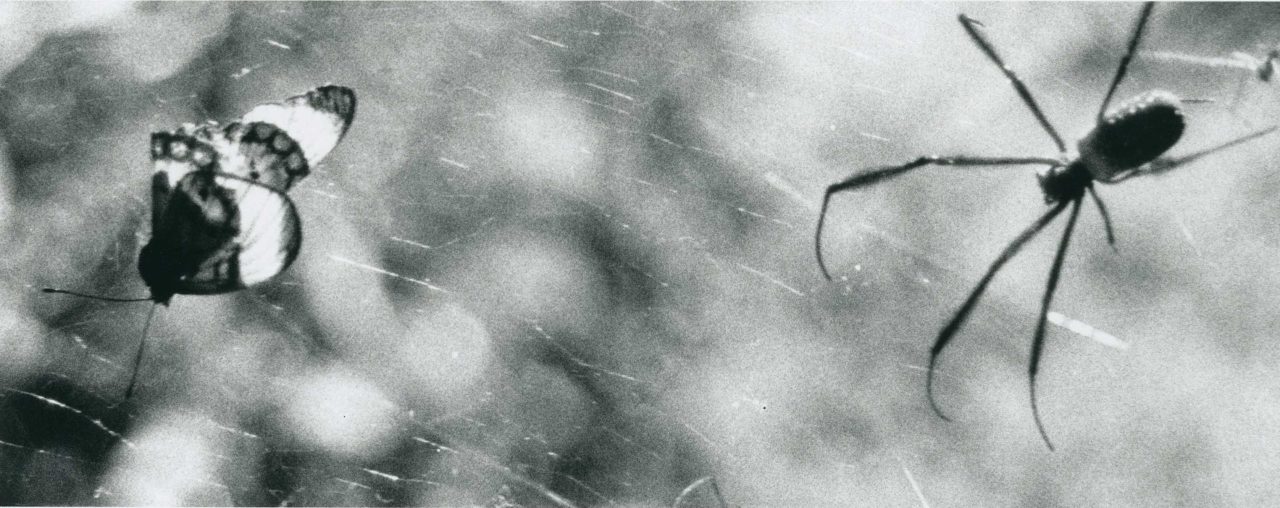Thursday 24 Mar 2022, 6:30 pm
The Cinematheque, 1131 Howe Street, Vancouver
Film Series: Traces and Intervals
-
Theresa Hak Kyung Cha
Theresa Hak Kyung Cha was an artist and writer born in 1951 in Pusan, South Korea. Over a ten-year period in the 1970s, she received four degrees from the University of California at Berkeley, and in 1976 studied at the Centre d’Etudes Americaine du Cinéma in Paris. Cha was awarded an artist’s residence at the Nova Scotia College of Art and Design, taught video art at Elizabeth Seton College and worked in the design department of the Metropolitan Museum of Art. From 1980 until her death in 1982, she was an editor and writer at Tanam Press in New York. Cha created a rich body of conceptual art that explored displacement and loss. Her work has been shown at the Berkeley Art Museum; Artists Space, New York; Whitney Museum of American Art, New York; and the Bronx Museum of Art, New York, among other venues. Her book Dictée, which was published posthumously in 1982, is recognized as an influential investigation of identity in the context of history, ethnicity and gender. A major retrospective exhibition of her work, entitled The Dream of the Audience: Theresa Hak Kyung Cha (1951-1982) was organized by University of California, Berkeley Art Museum and Pacific Film Archive in 2001, and traveled to five cities, including Seoul, Korea.
Read More
-
Trinh T. Minh-ha
Trinh T. Minh-ha is a filmmaker, writer and music composer. The recipient of numerous awards and grants, her films have been given over 48 retrospectives in Argentina, Croatia, Columbia, Mexico, Finland, Brazil, Canada, Italy, Korea, Spain, the Netherlands, Slovenia, France, Germany, Switzerland, Austria, Japan, India, Taiwan, Hong Kong, Australia, the UK and the US, and were exhibited at the international contemporary art exhibition Documenta 11 (2002) in Germany. They have shown widely in the US, Canada, Senegal, Australia and New Zealand, as well as in Europe and Asia. Minh-ha has traveled and lectured extensively on film, art, feminism and cultural politics. She taught at the National Conservatory of Music in Dakar, Senegal (1977-80); at universities such as Cornell, San Francisco State, Smith, Harvard, Ochanomizu (Tokyo), Ritsumeikan (Kyoto), Dongguk (Seoul); and is Professor of Gender & Women’s Studies and of Rhetoric at the University of California, Berkeley.
Read More
-
Midi Onodera
Midi Onodera is an award-winning filmmaker and media artist who has been making films and videos for more than 35 years. In 2018, Onodera received the Governor General’s Award for Visual and Media Arts. Her work is laced with markers of her experiences as a feminist, lesbian, Japanese-Canadian woman. She has produced over 25 independent shorts, ranging from 16 mm film to digital video to toy camera formats. Her film The Displaced View (1988) was nominated for Best Documentary at the Gemini Awards. Skin Deep (1995), her theatrical feature, screened internationally at festivals including the Rotterdam International Film Festival and the Toronto International Film Festival. Since 2006 she has made over 500 Vidoodles (defined as bite-sized 30 second to two minute video doodles). From 2006-07 she published a vidoodle a day for 365 days. Since then, she has released a video project every year, addressing themes of language, media, politics and everyday life.
Read More
This event is free and open to the public, but space is limited; reserve your ticket now through The Cinematheque.
On the occasion of the exhibition Laiwan: Traces, Erasures, Resists, the Belkin in collaboration with The Cinematheque presents the film series Traces and Intervals. Laiwan’s Belkin exhibition highlights her works in print and lens-based media since the 1980s alongside her contributions to activist collectives and publications in Vancouver that include numerous film programs and reviews. Traces and Intervals features films by artists Theresa Hak Kyung Cha, Trinh T. Minh-ha and Midi Onodera. Like Laiwan, in the early 1980s these artists worked in conceptual and formal processes that sought to intervene in stereotypical expectations of identity through a destabilization of language, and a deconstruction of cinematic form.
In 1993, Laiwan would write in Angles magazine: “In our struggles against oppression and racism it is important to look at Trinh’s strategies in her filmmaking and writings to find models she was working towards, and the models she is working from, so that we can move on in our own work in culture and identity.” Traces and Intervals takes Trinh’s notion of the cinema interval as its starting point, the possibilities of a pause from one space to another that constitutes an interruption and irruption. It is at this intermission, distance, lapse or gap between states that the threshold of representation and communication appears. Each film in the series breaks with representation and identity as a fixed truth, offering instead a critique of the documentary desire through what Trinh calls an “unsutured process of meaning production.”
PROGRAM
Theresa Hak Kyung Cha, White Dust From Mongolia
(USA/South Korea 1980, 30 min.)
Trinh T. Minh-ha, REASSEMBLAGE
(USA/Senegal 1982, 40 min.)
Intermission (15 min.)
Midi Onodera, The Displaced View
(Canada 1988, 50 min.)
Theresa Hak Kyung Cha’s unfinished film White Dust From Mongolia (1980) includes rare footage that the artist took during a visit to Seoul seventeen years after her immigration from South Korea to the United States, and two years before the publication of her seminal book Dictée (1982). Trinh T. Minh-ha’s first film REASSEMBLAGE (1982), on women in rural Senegal, presents her attempt to “speak nearby” that has been influential in its challenge to the ethnographic representation of cultures and the documentary form. Composed simultaneously as a reconstructed history, fictionalized narrative and love letter to her grandmother, Midi Onodera’s The Displaced View (1988) searches for personal identity and suppressed histories through a critique of the documentary as truth.
For ticket information, visit www.thecinematheque.ca
Image (above): theresa hak kyung cha, White dust from mongolia (still), 1980, 16 mm film. courtesy of The Berkeley Art Museum and Pacific Film Archive.
-
Theresa Hak Kyung Cha
Theresa Hak Kyung Cha was an artist and writer born in 1951 in Pusan, South Korea. Over a ten-year period in the 1970s, she received four degrees from the University of California at Berkeley, and in 1976 studied at the Centre d’Etudes Americaine du Cinéma in Paris. Cha was awarded an artist’s residence at the Nova Scotia College of Art and Design, taught video art at Elizabeth Seton College and worked in the design department of the Metropolitan Museum of Art. From 1980 until her death in 1982, she was an editor and writer at Tanam Press in New York. Cha created a rich body of conceptual art that explored displacement and loss. Her work has been shown at the Berkeley Art Museum; Artists Space, New York; Whitney Museum of American Art, New York; and the Bronx Museum of Art, New York, among other venues. Her book Dictée, which was published posthumously in 1982, is recognized as an influential investigation of identity in the context of history, ethnicity and gender. A major retrospective exhibition of her work, entitled The Dream of the Audience: Theresa Hak Kyung Cha (1951-1982) was organized by University of California, Berkeley Art Museum and Pacific Film Archive in 2001, and traveled to five cities, including Seoul, Korea.
Read More
-
Trinh T. Minh-ha
Trinh T. Minh-ha is a filmmaker, writer and music composer. The recipient of numerous awards and grants, her films have been given over 48 retrospectives in Argentina, Croatia, Columbia, Mexico, Finland, Brazil, Canada, Italy, Korea, Spain, the Netherlands, Slovenia, France, Germany, Switzerland, Austria, Japan, India, Taiwan, Hong Kong, Australia, the UK and the US, and were exhibited at the international contemporary art exhibition Documenta 11 (2002) in Germany. They have shown widely in the US, Canada, Senegal, Australia and New Zealand, as well as in Europe and Asia. Minh-ha has traveled and lectured extensively on film, art, feminism and cultural politics. She taught at the National Conservatory of Music in Dakar, Senegal (1977-80); at universities such as Cornell, San Francisco State, Smith, Harvard, Ochanomizu (Tokyo), Ritsumeikan (Kyoto), Dongguk (Seoul); and is Professor of Gender & Women’s Studies and of Rhetoric at the University of California, Berkeley.
Read More
-
Midi Onodera
Midi Onodera is an award-winning filmmaker and media artist who has been making films and videos for more than 35 years. In 2018, Onodera received the Governor General’s Award for Visual and Media Arts. Her work is laced with markers of her experiences as a feminist, lesbian, Japanese-Canadian woman. She has produced over 25 independent shorts, ranging from 16 mm film to digital video to toy camera formats. Her film The Displaced View (1988) was nominated for Best Documentary at the Gemini Awards. Skin Deep (1995), her theatrical feature, screened internationally at festivals including the Rotterdam International Film Festival and the Toronto International Film Festival. Since 2006 she has made over 500 Vidoodles (defined as bite-sized 30 second to two minute video doodles). From 2006-07 she published a vidoodle a day for 365 days. Since then, she has released a video project every year, addressing themes of language, media, politics and everyday life.
Read More
Related
-
Exhibition
7 Jan – 10 Apr 2022
Laiwan: Traces, Erasures, Resists

Laiwan: Traces, Erasures, Resists highlights the artist's attention to the material and symbolic vocabularies of print and lens-based media between 1980 and 2000 and features her early interventions into the logic of the book form and the ideology of historical and encyclopedic genres. Guest curated by Amy Kazymerchyk, the exhibition title references processes related to printmaking, while also speaking to the absent narratives, redacted perspectives and critical refusals that are latent in official publications.
[more]
